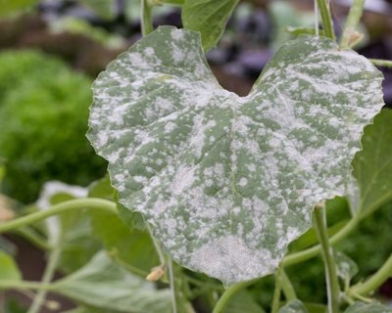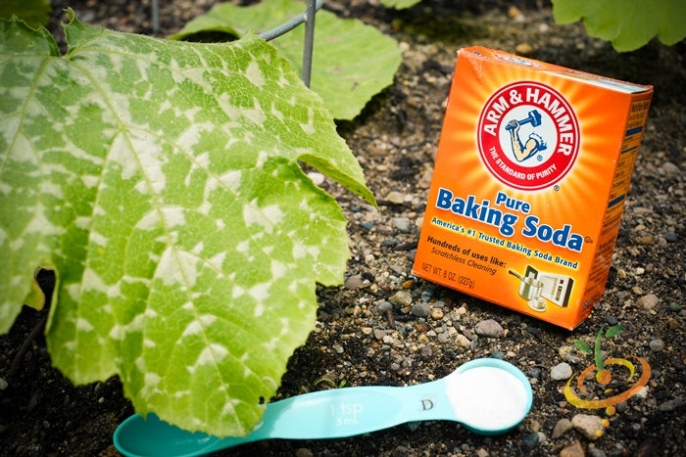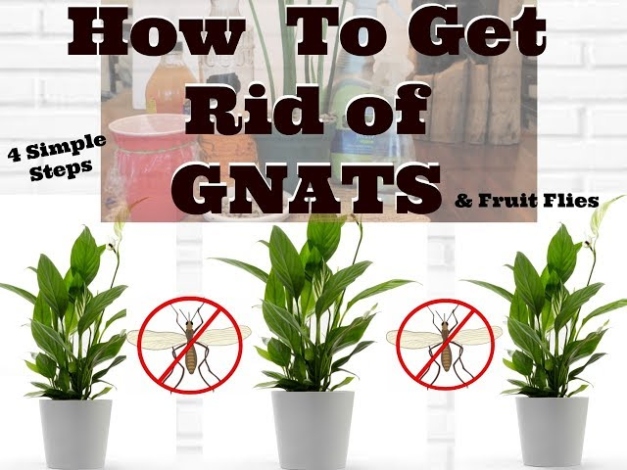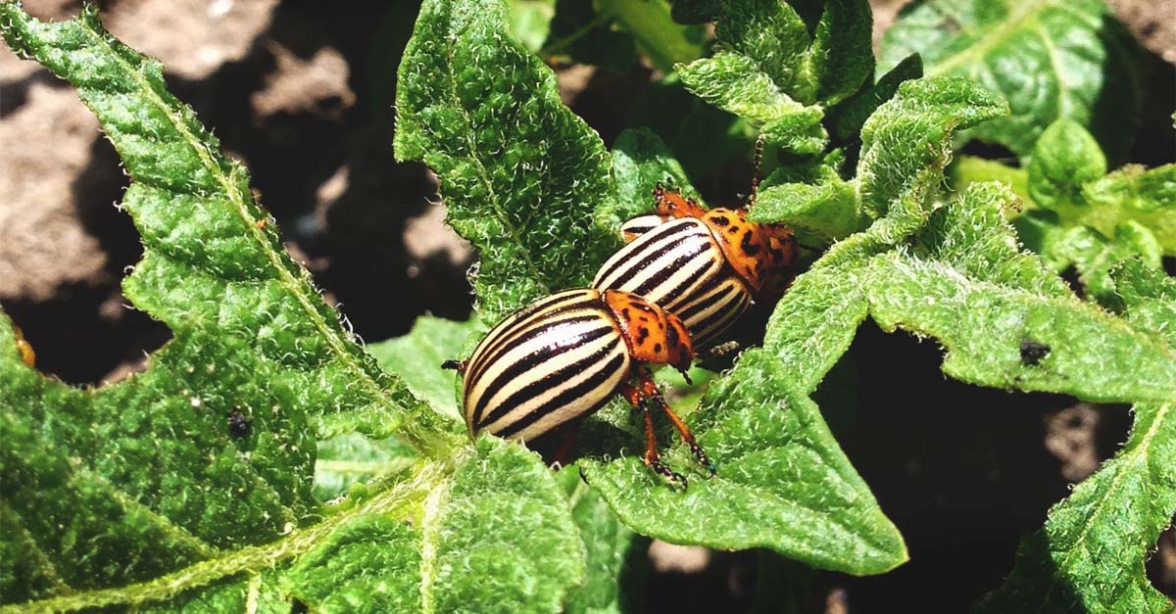How to Get Rid of Slugs From Plants
What do you mean by slugs on plants?
Slugs are soft-bodied, slow-moving pests that can wreak havoc on your garden plants. They feed on the leaves, stems, and fruits of a wide variety of plants, causing significant damage and potentially killing the plants if left unchecked. Slugs are particularly problematic in moist, shady areas and can be a persistent problem for gardeners.
How do you know if your plants have slugs?
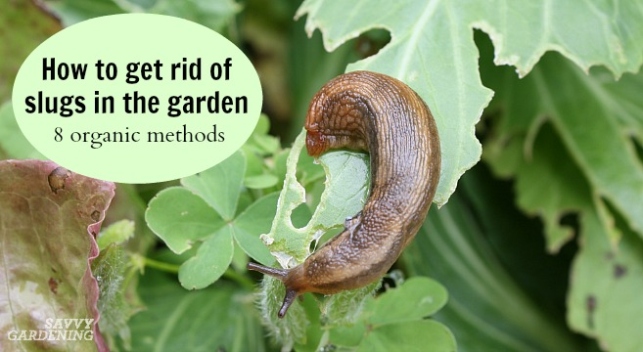
Image Source: i0.wp.com
If you notice irregular holes in the leaves of your plants, slimy trails on the ground or plant surfaces, or chewed fruits and vegetables, you likely have a slug problem. Slugs are most active at night and during periods of high humidity, so you may not see them during the day. However, their damage is usually quite evident.
What is the solution to get rid of slugs from plants?
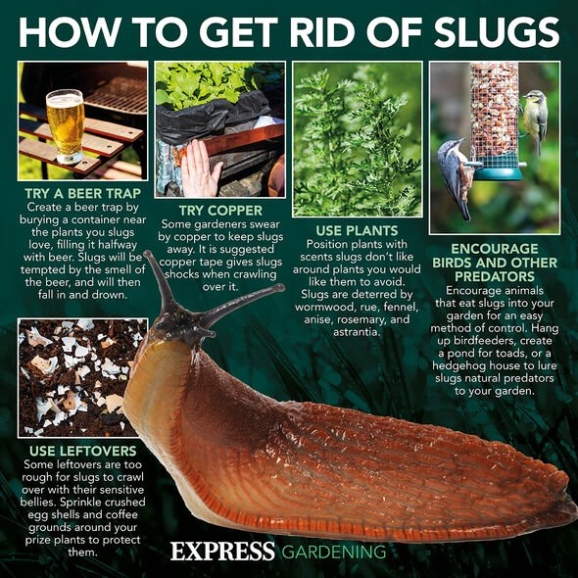
Image Source: express.co.uk
There are several methods you can use to control and eliminate slugs from your plants. Some popular options include handpicking the slugs, setting up traps, creating physical barriers, using natural predators, and applying chemical or organic slug control products. Each method has its pros and cons, so you may need to experiment to find the best solution for your garden.
Information on how to get rid of slugs from plants
One of the most effective ways to control slugs is to handpick them from your plants. This method requires patience and diligence, as you will need to regularly inspect your plants and remove any slugs you find. To do this, simply wear gloves and pick the slugs off the leaves and stems of your plants, then dispose of them in a bucket of soapy water or crush them.
Another option is to set up traps to attract and capture slugs. You can use beer traps, which involve burying a container filled with beer in the ground near your plants. The slugs will be attracted to the scent of the beer and fall in, where they will drown. You can also use other bait traps, such as citrus rinds or lettuce leaves, to lure the slugs away from your plants.
Physical barriers can also be effective in keeping slugs away from your plants. You can create a barrier around your garden beds using copper tape or diatomaceous earth, both of which slugs find difficult to crawl over. Alternatively, you can use a raised bed or container gardening to elevate your plants out of reach of the slugs.
Natural predators, such as ducks, chickens, and toads, can help control slug populations in your garden. These animals will eat the slugs and keep their numbers in check. You can also attract beneficial insects, such as ground beetles and parasitic nematodes, which feed on slugs and help control their population.
If you prefer to use a chemical or organic slug control product, there are several options available. Chemical slug pellets are effective but can be harmful to other wildlife and pets, so use them sparingly and according to the manufacturer’s instructions. Organic solutions, such as iron phosphate-based products, are safer for the environment and can be just as effective at controlling slugs.
Overall, the key to getting rid of slugs from your plants is to be proactive and consistent in your control efforts. By regularly inspecting your plants, using a combination of methods, and being patient, you can successfully eliminate slugs from your garden and protect your plants from damage.
Conclusion
Slugs can be a frustrating pest for gardeners, but with the right strategies and persistence, you can effectively control and eliminate them from your plants. Whether you choose to handpick the slugs, set up traps, create physical barriers, use natural predators, or apply chemical or organic control products, the key is to be proactive and consistent in your efforts. By taking steps to protect your plants from slugs, you can enjoy a healthy and thriving garden.
FAQs
1. Do slugs only feed on certain types of plants?
No, slugs can feed on a wide variety of plants, including vegetables, fruits, flowers, and ornamental plants. They are opportunistic feeders and will consume whatever is available to them.
2. Are there any plants that are resistant to slugs?
While no plant is completely immune to slug damage, some plants are more resistant than others. Plants with tough, fibrous leaves or strong scents are less likely to be targeted by slugs.
3. How can I prevent slugs from returning to my garden?
Regularly inspecting your plants, removing any debris or hiding spots, keeping your garden beds clean and dry, and using natural predators can help prevent slugs from returning to your garden.
4. Are there any natural repellents that can deter slugs?
Plants such as lavender, rosemary, mint, and garlic are known to repel slugs due to their strong scents. You can plant these around your garden to help keep slugs away.
5. Can slugs be beneficial in any way?
While slugs are generally considered pests, they can also help break down organic matter and recycle nutrients in the soil. However, their potential benefits are usually outweighed by the damage they cause to plants.
6. What time of day are slugs most active?
Slugs are most active at night and during periods of high humidity. They prefer to feed in the dark and will hide in damp, shady areas during the day.
7. Is it safe to use chemical slug control products in my garden?
While chemical slug control products can be effective, they can also be harmful to other wildlife, pets, and beneficial insects. If you choose to use chemical products, be sure to follow the manufacturer’s instructions Carefully and use them sparingly.
how to get rid of slugs from plants







